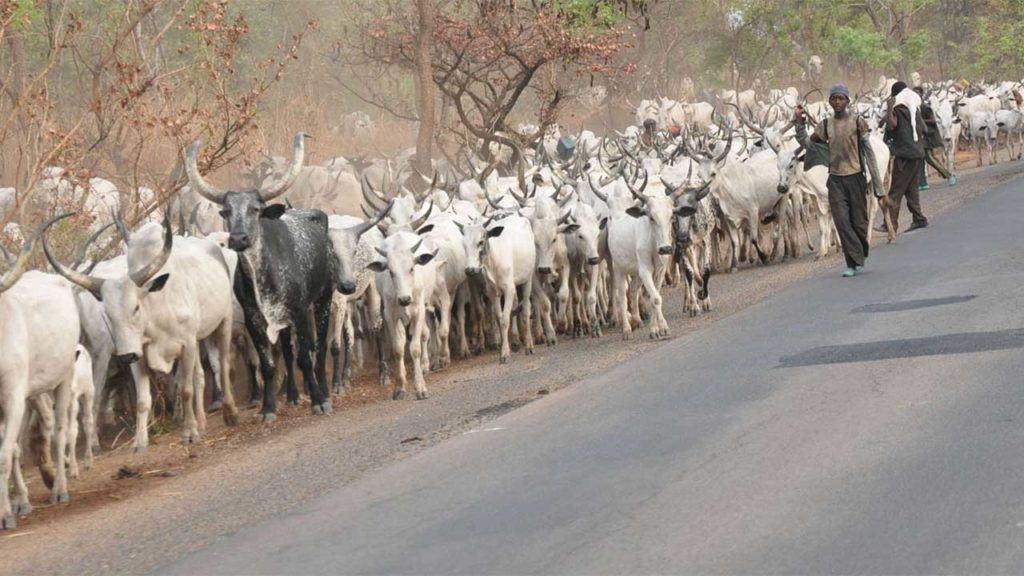While international news has highlighted Boko Haram’s activity, an even more deadly war is quietly threatening the stability of Nigeria. Tensions are hot and ethnic divides run deep in Nigeria’s southern and northern states known as the Middle Belt. Christian farmers and Fulani Muslim herders have had historically lived peacefully. But, recently, environmental disasters have created tensions and sparked a new, deadly land conflict in Nigeria’s Middle Belt.
Desertification Harms Agriculture in Nigeria
Over the past decade, Nigeria has suffered at the hands of desertification and warming temperatures. In the traditional grazing areas where Fulani have traditionally lived, rivers, streams and wells have run dry. Furthermore, land that was once good for herders and farmers alike is slowing losing its fertility. At least 60 percent of Nigerian land has been impacted by desertification. And, more land is being lost every day. Nigeria loses roughly 350,000 acres of land to desertification every year.
As resources dwindle, the Christian farmers and Fulani herders are becoming more desperate for land. With a booming population in the South and Boko Haram controlling territory in the North, land for agriculture and cattle herding is few and far between. The conflict in Nigeria’s Middle Belt has gotten brutal, out of control and is threatening the future of the country.
The Deadly Conflict in Nigeria’s Middle Belt
Feuds between farmers and herders over land are not rare. Over the past decade, sporadic feuds between the two have resulted in 10,000 casualties, and more than 100,000 children have been displaced. Recently, the conflict has taken a more deadly turn. In 2018, clashes between farmers and herders in Nigeria’s Middle Belt was considered six times deadlier than all of Boko Haram’s activity.
The sporadic land disputes have turned more violent as the two rival groups have turned into organized, vigilante militias stocked with machetes and guns. The sudden rise of violence has left local and national police unable to protect those at risk. As a result, these groups have lost trust in the police. Recently, former Defense Minister Gen. Theophilus Daniuma called for people in Taraba to stop relying on the police and fend for themselves. Daniuma claimed that the police are biased and inadequate since they have failed to respond to the conflict. In the Adamawa state, police have only charged five people for the violence since 2017.
To make matters worse, government proposals to stop the violence have only exacerbated the conflict. The national government passed anti-grazing laws, which prevent herders from allowing their cattle to graze on farmland. As it turns out, the Fulani have been freelance herders for generations, and the new government law effectively outlaws historic practices. The result has been more land disputes, more violence and more deaths.
Climate Change and Conflict
Violence on the scale that Nigeria has witnessed poses serious threats to the entire country. The Middle Belt is Nigeria’s breadbasket. The population relies on the crops grown and the cattle herded from this region. Currently, 190 million people call Nigeria home and that number is expected to grow. Predictions show that Nigeria could have the third-largest population in the world by 2050.
These people need food. But, with Nigeria’s agriculture hub constantly in a state of war, food production is slowly grinding towards a halt. This means that poorer populations, both urban and rural, are at serious risk of starvation due to serious food shortages.
Nigeria has also taken a serious economic hit from the ongoing conflict. Many farmers have lost their land due to scorched Earth military tactics. Herders have lost a tremendous amount of cattle in the conflict. In other words, citizens in this area have lost the means to their income. Crop destruction, water pollution and cattle theft have been the result of ethnically divided farmers and herders fighting for land and scarce resources.
Furthermore, conflict in Nigeria’s Middle Belt has resulted in a humanitarian crisis. Those who have no choice to flee are forced into dangerous refugee camps. Women have been subject to sexual assault that comes with few repercussions. The camps are also overcrowded with far more people than beds. People are forced to spend their nights outside where they are at the mercy of heat, rain and mosquitoes.
What is the Solution?
Because conflict in Nigeria’s Middle Belt has been ongoing, brutal and deadly, no easy answer exists. However, there have been four solutions that have been proposed and have the potential to provide relief to the recent violence.
- The government must commit to providing neutral support to those being affected by the conflict. So far, the Nigerian government has struggled to provide consistent policing. Investigations into crimes committed is an important part of the process. By doing so, it becomes possible to restore the relationship between tribes and national police.
- The government must follow through with the National Livestock Transformation Plan, which may help to calm tensions between herders and farmers. The plan would allow for the Fulani herders to transition into ranchers where they would have land designating for cattle grazing.
- The government must slowly phase out the anti-grazing laws. While these laws had good intentions and were designed to reduce land tensions, the opposite has happened. As farmers and herders have come into proximity, these laws have only exacerbated the issues.
- Dialogue is key. Without communication among tribe leaders, nothing can get done. The Nigerian government has to support and encourage positive communication among leaders before peace can be found.
If the Nigerian government can implement these solutions, it may be possible to restore the peace between these groups. However, more must be done to address the issue of climate change, overpoputation and the lack of resources.
– Andrew Edwards

